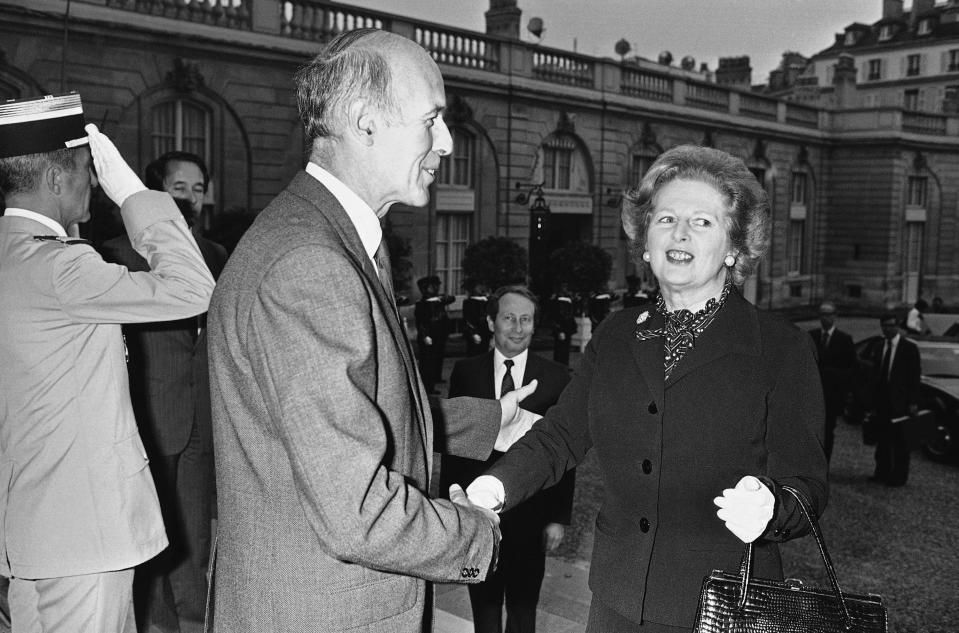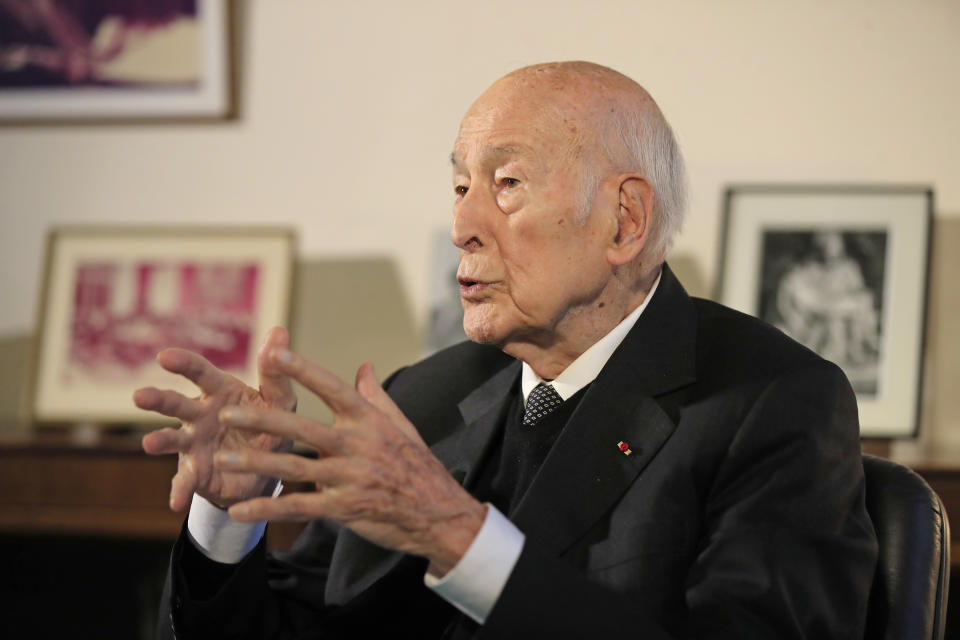AP Interview: French ex-president regrets, shrugs off Brexit
PARIS (AP) — Former French President Valery Giscard d’Estaing, who has spent much of his 93 years working to forge a united Europe, is remarkably blasé about Brexit.
Barely 24 hours before Britain becomes the first country to quit the European Union, Giscard d'Estaing called it a “step backward” geopolitically, but took the long view.
“We functioned without Britain during the first years of the European Union ... So we will rediscover a situation that we have already known," he told The Associated Press in an interview Thursday.
Born in Germany in the wake of World War I, Giscard d'Estaing helped liberate Paris from the Nazis in the next world war, and later laid the groundwork for the shared euro currency and helped integrate Britain into what became the EU in the 1970s.
Seeing the Britons leave, “I feel great regret,” he acknowledged, both for himself and the world order his generation built.
“We live in troubled times, with the United States taking a rather surprising direction, with this continuing situation of violence in the Middle East and disorder within the global system," he said.
“Europe was a means to develop a stable and efficient system, respectful of political and economic rules. It was an important project,” he said, "and Brexit is the first step backwards.”
He doesn't, however, regret writing the article in the EU charter that allows a member to quit, and called it key to ensuring the union's open, democratic spirit.
He described traveling every month to London to discuss the measure with then-Prime Minister Tony Blair in the early 2000s - but said he didn't expect the British to use it so soon.
Giscard d'Estaing, who was president from 1974 to 1981 and later a member of the European Parliament, among many other roles, views Brexit as a British-centered problem, and wouldn't address whether the EU's own failings played a role in pushing the Brits out the door.
He said “it's a bad idea” to extend negotiations over Britain's future relationship with the EU beyond Dec. 31, and wants both sides to just move on.
And he remained unfailingly optimistic in the European project, forecasting that the EU and the euro will bounce back and gradually grow stronger and bigger despite the challenges of losing a major member.
Having seen Britain swing back and forth on European integration over the past three-quarters of a century, Giscard d'Estaing suggested the British may want to come back one day.
“First, a majority of people were against Europe and then in favor of it for 47 years,” he said. "Now, they’re leaving. But after 10 years, will they say that it was a mistake to leave, or will they stick to their decision?”
___
Follow AP's Brexit coverage at http::/apnews.com/brexit.



